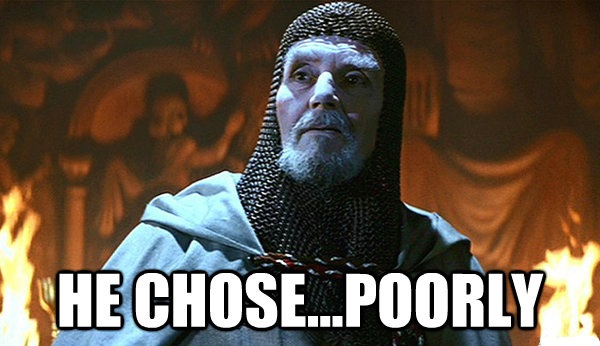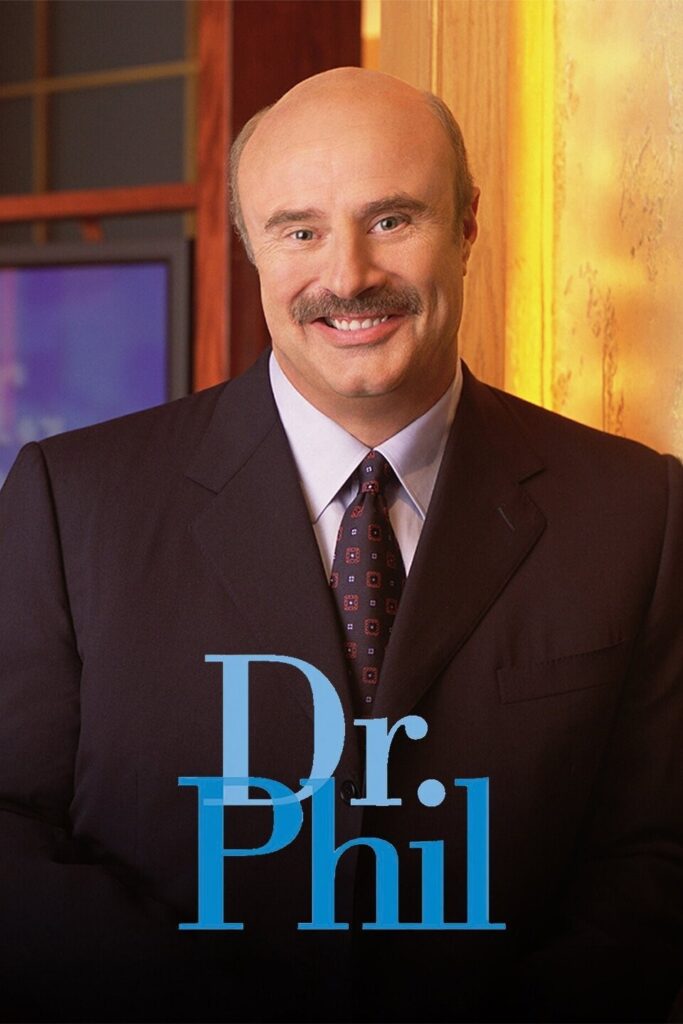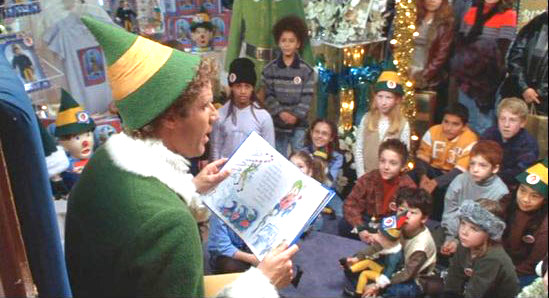
Announcer Voice: “Previously, on ‘How to Fix a Broken Chooser’ . . .” In the first installment of this three-part series of posts I made this statement:
Your choices are largely driven by two things:
- What you value.
- What you fear.
This whole series of posts is for Christians who seemingly, in hindsight, make the wrong choice over and over. Or who, in at least one area of their lives, get bad outcomes in the choices they make.
In that first installment, I also wrote this:
I can say with reasonable confidence that I’ve never once made a good image-driven or status-driven decision.
If you haven’t read that post, stop now, click here and read it, and them come back here a week from now when you’re finished. (Okay, it may be a little on the LONG side.)

I can say with equal confidence that I’ve never made a good FEAR-driven decision, either. But I can look back across my life and identify many fear-driven decisions that were terrible ones. That’s the insidious thing about fear. It convinces you that it’s the voice of wisdom, prudence, and reason–when in reality fear is really, truly, fundamentally like having an evil idiot for an advisor.
This relates to something I said in the previous post about our ability to rationalize logically what we, at an emotional level, think we want. When I’m teaching and training marketing/sales folks, I make sure they understand that all decision-making starts with emotion.
In other words, the “heart” chooses and then asks the “head” to sign off on it. That moment—when the head is being asked to validate an emotional preference that is not at all rooted in reason—rationalization steps in to “help.”
Yes, all decision making starts with emotion. And there are few emotions more powerful or more visceral than fear. The huge problem with having fear be your “decision-driver” is that it usually drives you to the wrong choice. Along these lines, the mystic-sage Dr. Phil has said:

“Eighty percent of all choices are based on fear. Most people don’t choose what they want; they choose what they think is safe.”
I suspect this has always been true. BUT . . . the age of the smart phones, social media, the 24-hour news cycle and the nature of the internet economy have all conspired to try to keep you afraid or alarmed all the time. Here’s something I wrote in one of the devotionals in Praying Grace for Women, titled “Lighten Up”:
An inescapable electronic news and information ecosystem is designed to fuel either fear or outrage in you because everyone on the internet gets paid through clicks, pageviews, and shares. Carrying these weights in an environment of pandemics, protests, and political polarization is a prescription for the crushing of the human soul with care. Your soul.
Most of us carry around in our hands a device that keeps our nervous systems in “fight, flight, or freeze” mode all of our waking hours. Not good. And here’s another factor.
All humans come equipped with something I call an “Inner Story Teller.”

It’s rooted in our God-given imaginations. It’s our ability to vividly imagine scenarios we’ve never actually encountered, conversations we’ve never had, and a variety of futures that might, but probably won’t, unfold.
In reality, the God-given purpose of your Inner Story Teller is to produce this in you . . . Hope! Paul seems to have had this in mind when he wrote Ephesians 1:18-19:
“[I pray]. . . that the eyes of your understanding [imagination?] may be enlightened, that you may know what is the hope of His calling and what are the riches of the glory of His inheritance among the saints, and what is the surpassing greatness of His power toward us who believe…” (MEV)
But the enemy of our souls delights in getting us to turn this powerful weapon on ourselves. Instead of letting the Spirit of God help our imaginations tell us stories of the good future God has in store for us, we let the enemy hijack it and we start telling ourselves stories of catastrophe, tragedy, heartache, or rejection.
When this becomes a pattern, as it does for so many, life becomes very small. I recently came across a clip from an interview with Erwin McManus that banged the Gong of Truth for me. It’s very short. Watch it here:
Just in case you weren’t able to play it, here is a transcript of the clip:
Erwin McManus: “Fear establishes the boundaries of our freedom. So whatever you’re afraid of, that becomes your limitation. If you’re afraid of heights, you stay low. If you’re afraid of people, you stay alone. If you’re afraid of failure, you stay safe. And when you realize that fear establishes the boundaries of your freedom, the moment you press through those fears, now you have unlimited freedom.”
This is heartbreakingly true. As a result, the most fearful among us live the littlest, most constrained lives.
I know sweet people . . . people who love God and and are desperately loved by God . . . who live tiny lives because their fears have shrunk their world so comprehensively, they’re like anxious, miserable baby calves in a veal pen.
And, with fear as their “evil idiot advisor” they consistently make bad choices that produce bad outcomes.
Fear isn’t an easy habit to kick. And it is a habit—a habit of the heart and mind. Numerous scriptures reveal that fear’s “kryptonite” is love. God’s love. In practical terms, this means renewing your mind to the truth about God’s goodness and kindness toward you. And rooting your identity deeply in the reality that you are a beloved, accepted, son or daughter of God.
Now, if you’ve been a victim of profound or prolonged trauma, in order to find freedom from fear you may very well also need professional Christian therapies of the type provided the folks here. If so, go get that help!
But yes, both fear and bad values will consistently drive poor choices in your life. So, in the third and final installment, I hope to show you, to borrow Paul’s phrase, “a more excellent way.”

